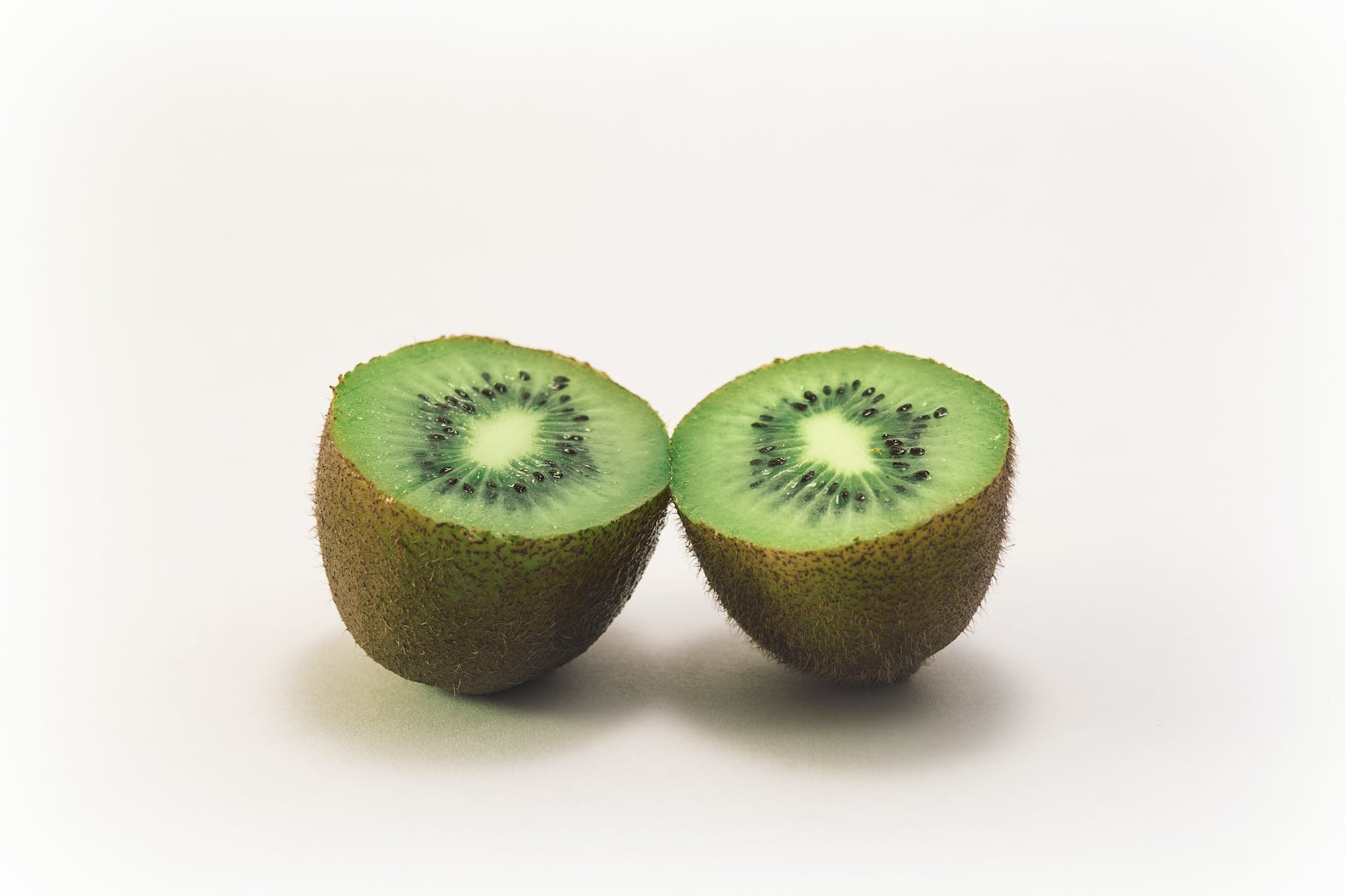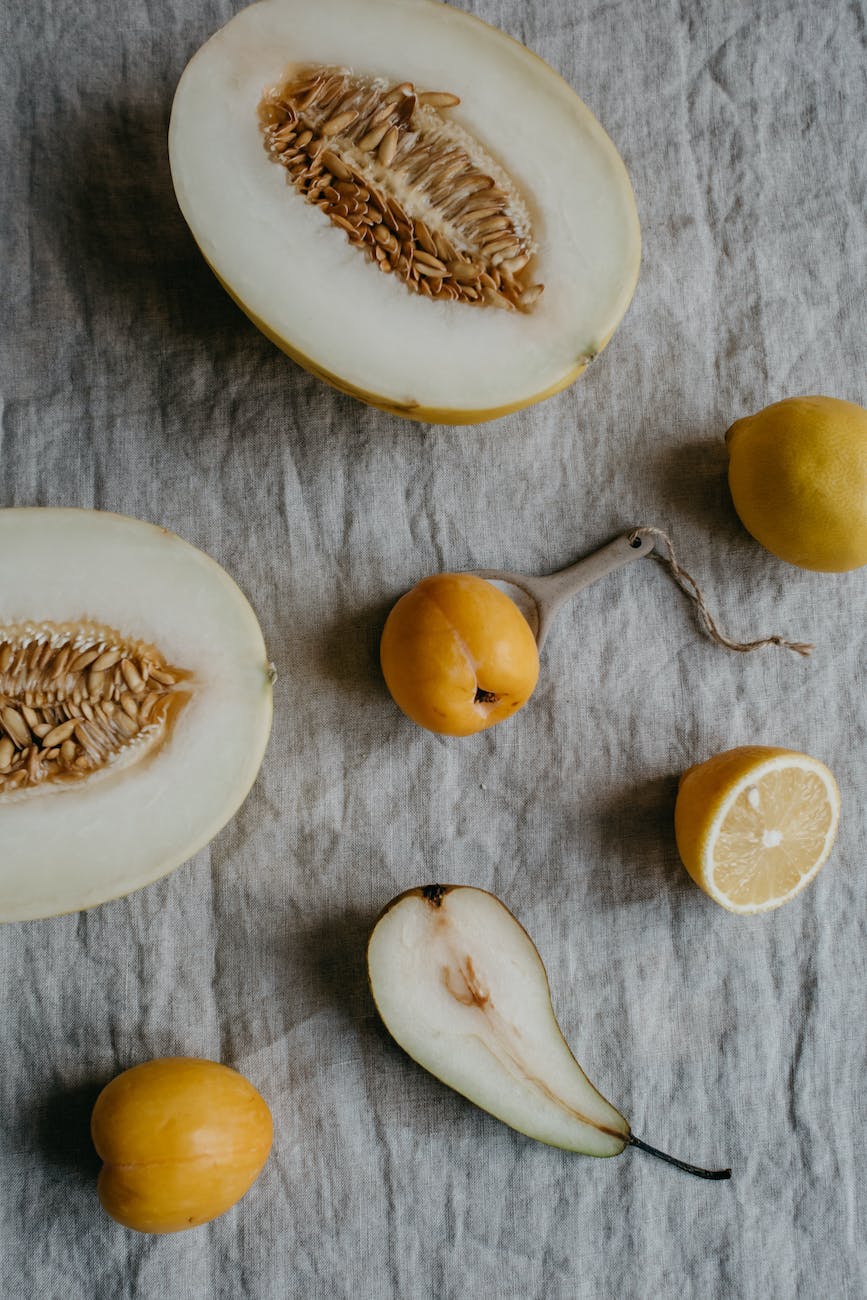
Introduction: 🌟 Kiwi fruit, also known as the Chinese gooseberry, is a small but mighty fruit that packs a powerful punch when it comes to nutrition. With its vibrant green flesh, tangy flavor, and numerous health benefits, kiwi fruit has become a favorite among fruit enthusiasts. In this blog post, we will dive into the nutritional value of kiwi fruit, explore its potential health benefits, and provide creative ideas on how to enjoy this delightful fruit.
Nutrition Profile of Kiwi Fruit: 🍎
Kiwi fruit is a nutritional powerhouse, providing a wide range of essential vitamins, minerals, and antioxidants. Here’s a closer look at the key nutrients found in kiwi fruit:
- Vitamin C: Kiwi fruit is a superstar when it comes to vitamin C content. In fact, a single kiwi can meet or exceed your daily vitamin C needs. Vitamin C is crucial for immune function, collagen synthesis, and acts as a potent antioxidant.
- Vitamin K: Kiwi fruit is a good source of vitamin K, which plays a vital role in blood clotting and bone health.
- Fiber: Kiwi fruit is rich in dietary fiber, promoting healthy digestion, supporting regular bowel movements, and providing a feeling of fullness.
- Potassium: Kiwi fruit contains potassium, an essential mineral that helps maintain heart health, regulate blood pressure, and support proper muscle function.
- Antioxidants: Kiwi fruit is packed with antioxidants, including polyphenols and carotenoids, which help protect the body against oxidative stress and inflammation.
Health Benefits of Kiwi Fruit: 🌿
The consumption of kiwi fruit has been associated with several health benefits, including:
- Immune Support: The high vitamin C content in kiwi fruit strengthens the immune system, helps fight off infections, and supports overall immune function.
- Digestive Health: The fiber in kiwi fruit promotes healthy digestion, aids in relieving constipation, and supports a healthy gut microbiome.
- Heart Health: The combination of fiber, potassium, and antioxidants in kiwi fruit may contribute to maintaining healthy blood pressure levels, reducing the risk of heart disease, and supporting overall cardiovascular health.
- Skin Health: The antioxidants in kiwi fruit, along with its vitamin C content, help protect the skin from free radical damage, promote collagen synthesis, and contribute to a healthy and vibrant complexion.
- Eye Health: Kiwi fruit contains lutein and zeaxanthin, two antioxidants known to promote eye health and protect against age-related macular degeneration.
How to Eat Kiwi Fruit: 🍽️
Kiwi fruit can be enjoyed in various delicious ways. Here are some ideas to incorporate this nutritious fruit into your diet:
- Fresh and Simple: Peel the kiwi fruit and savor the juicy flesh as a refreshing snack on its own.
- Sliced Delight: Slice kiwi fruit and add it to fruit salads, yogurt bowls, or smoothie bowls for a burst of tangy flavor and vibrant color.
- Smoothie Bliss: Blend kiwi fruit with other fruits like banana, spinach, and coconut water for a refreshing and nutrient-packed smoothie.
- Tropical Twist: Combine kiwi fruit slices with other tropical fruits like pineapple, mango, and papaya for a tropical fruit salad.
- Grilled Goodness: Grill kiwi fruit slices for a few minutes to bring out their natural sweetness and serve them as a delightful and healthy dessert.
Conclusion: 🌈 Kiwi fruit is a nutritional powerhouse, offering a plethora of vitamins, minerals, and antioxidants that can support overall health and well-being. With its tangy flavor and versatility, kiwi fruit can be easily incorporated into a balanced diet. Whether enjoyed fresh, sliced, blended in smoothies, or added to various culinary creations, this small fruit can bring a burst of nutrition and vibrancy to your meals.
Join our vibrant community of food lovers at Eatlo Community to share your experiences, discover new recipes, and embrace a healthy and delicious lifestyle together.
🥝🌱











